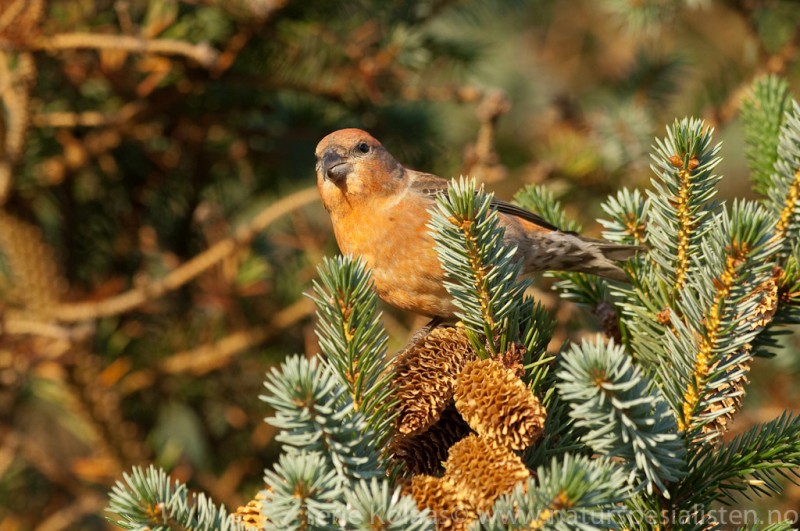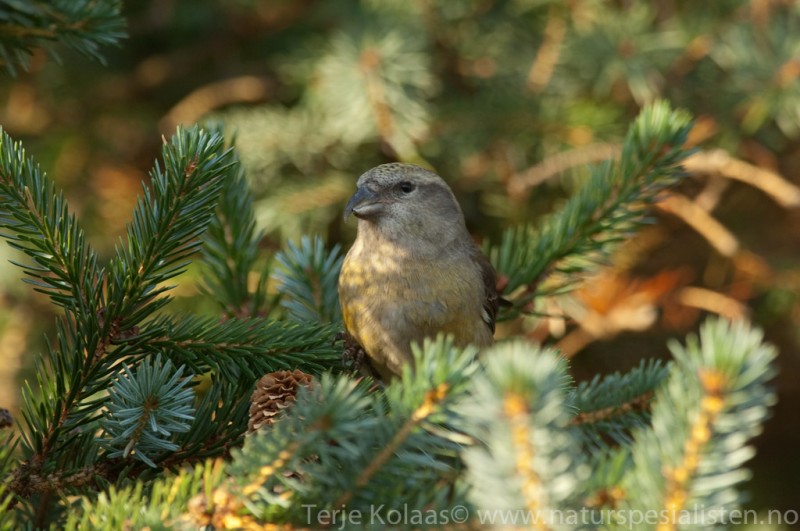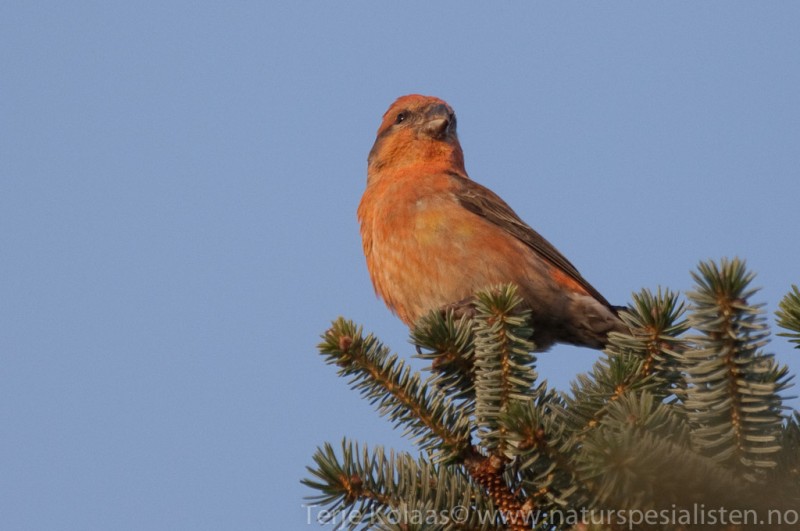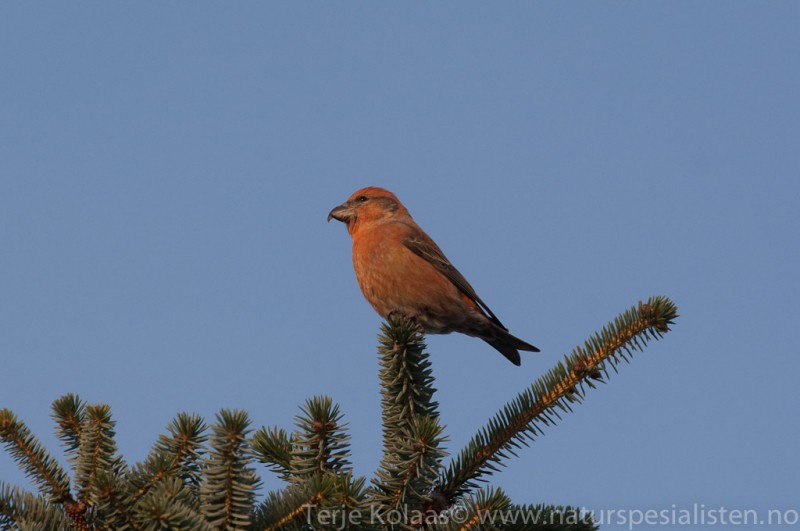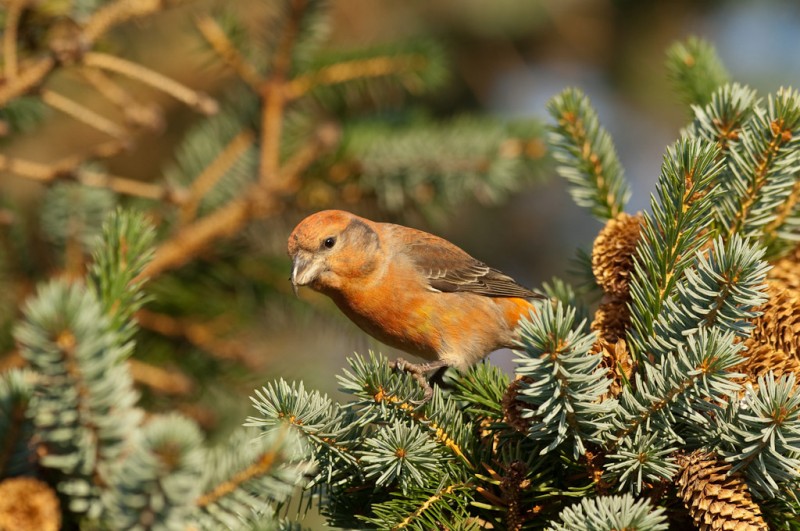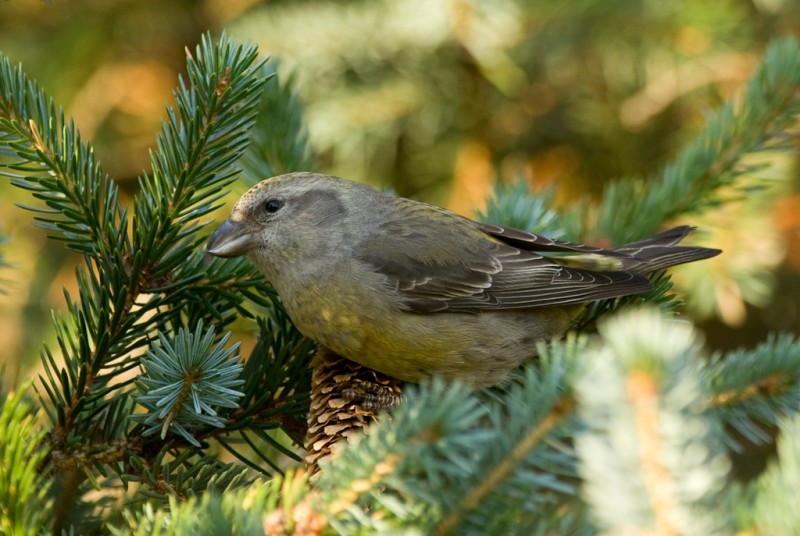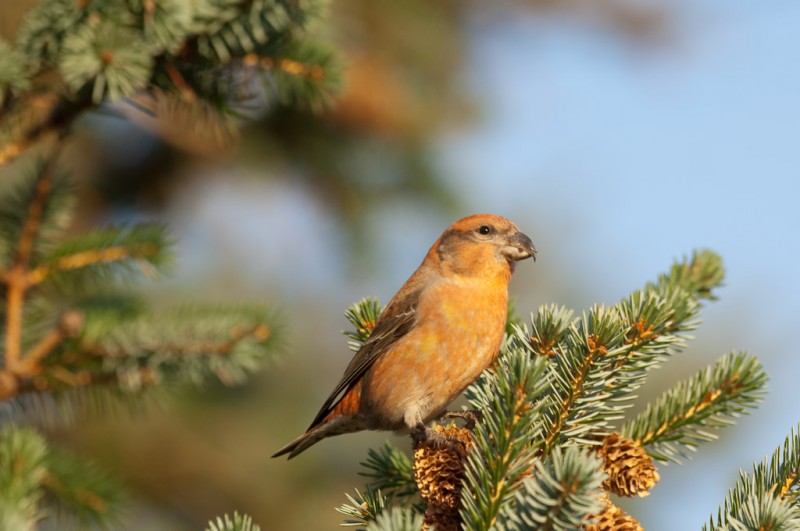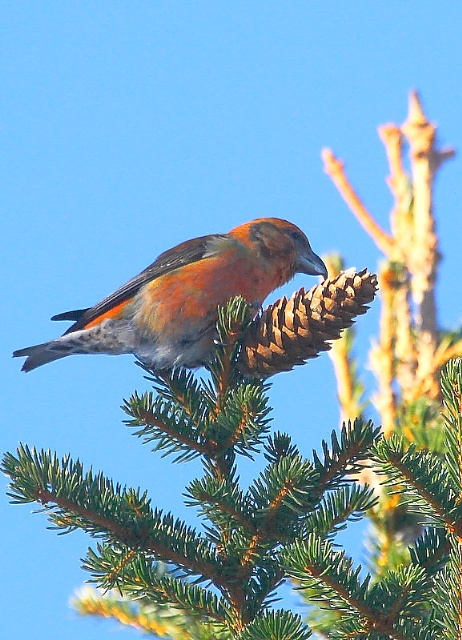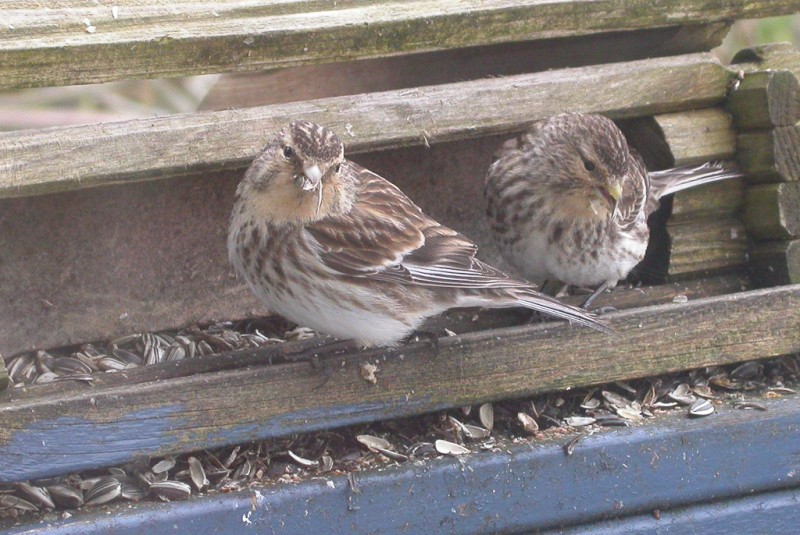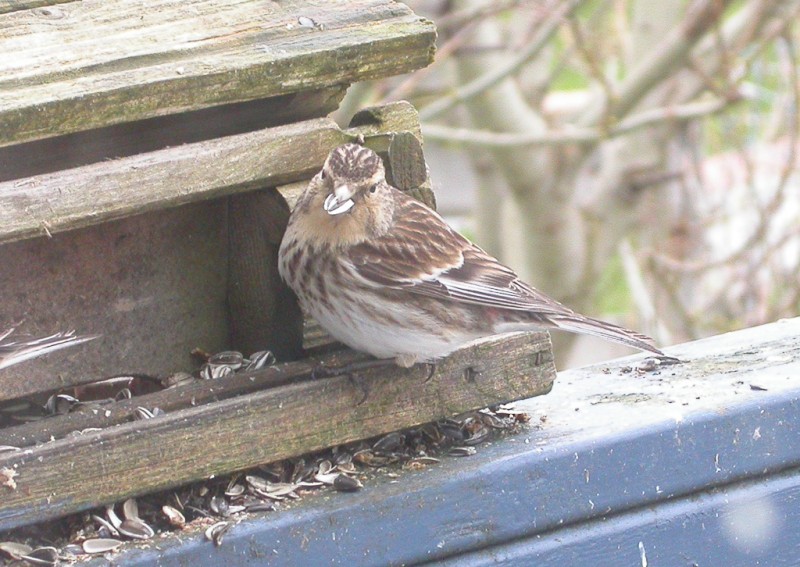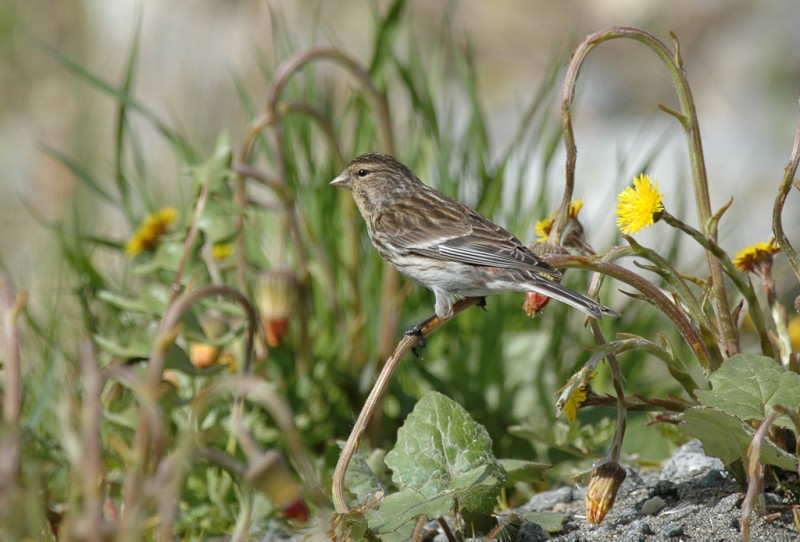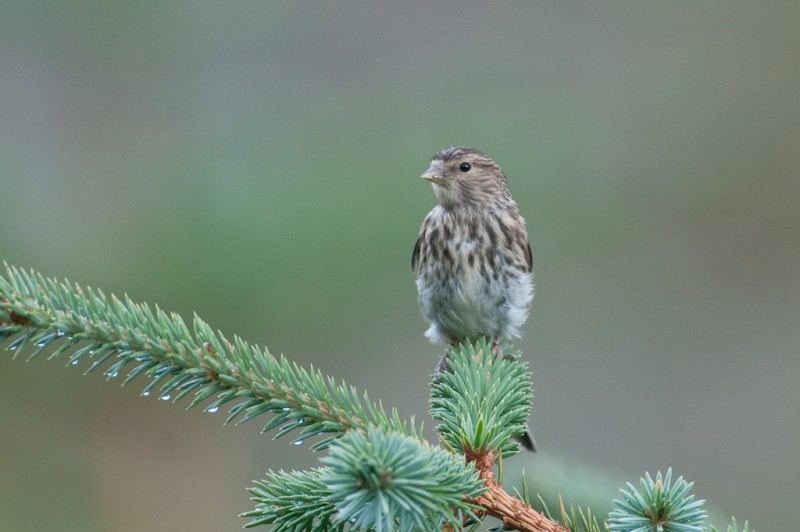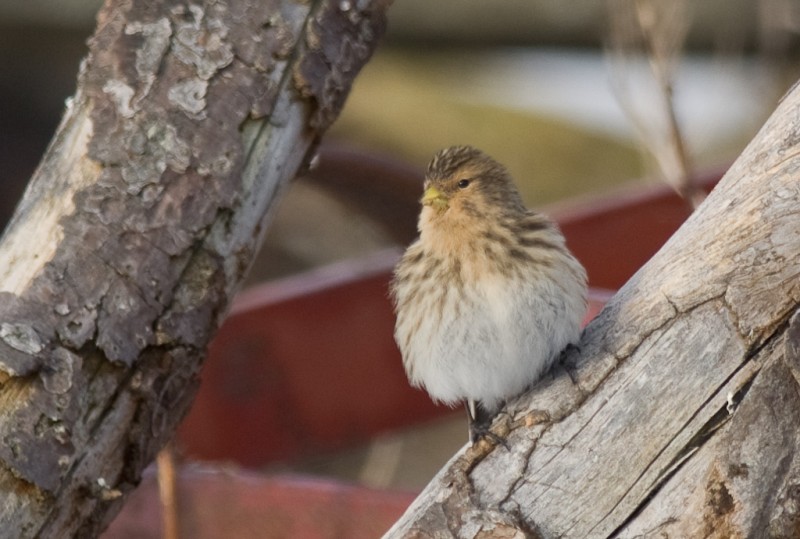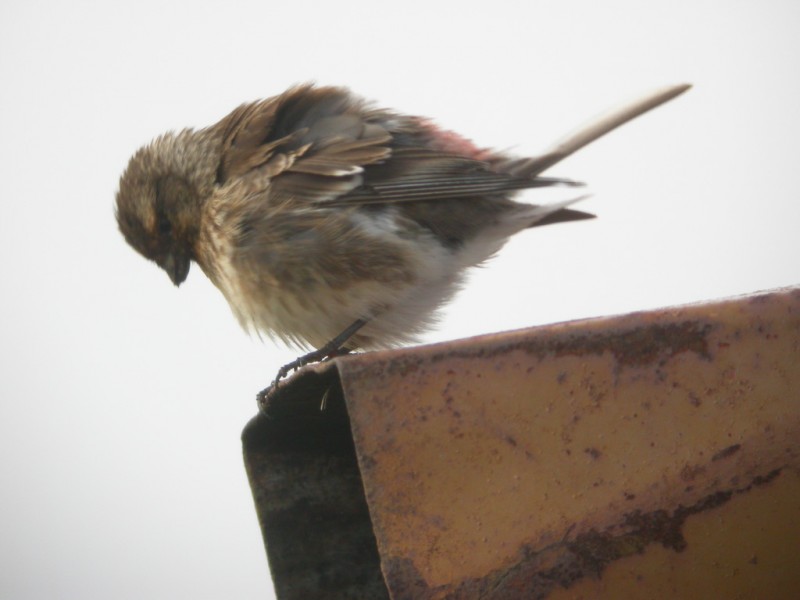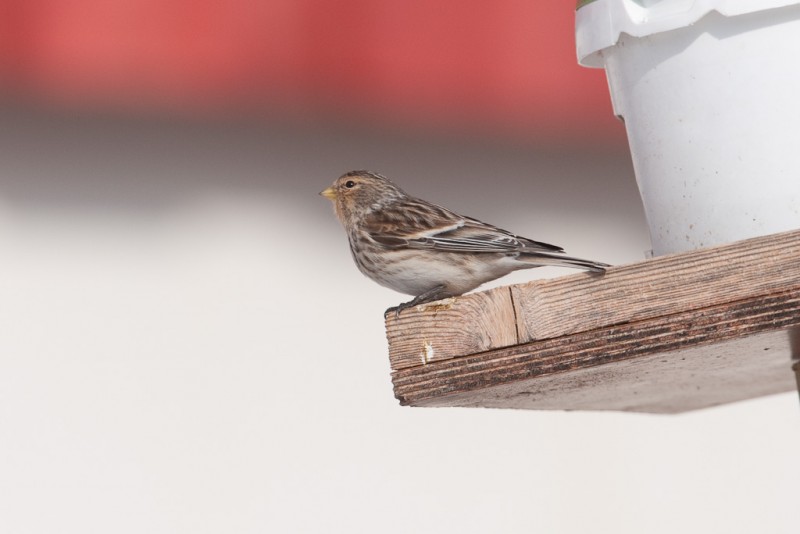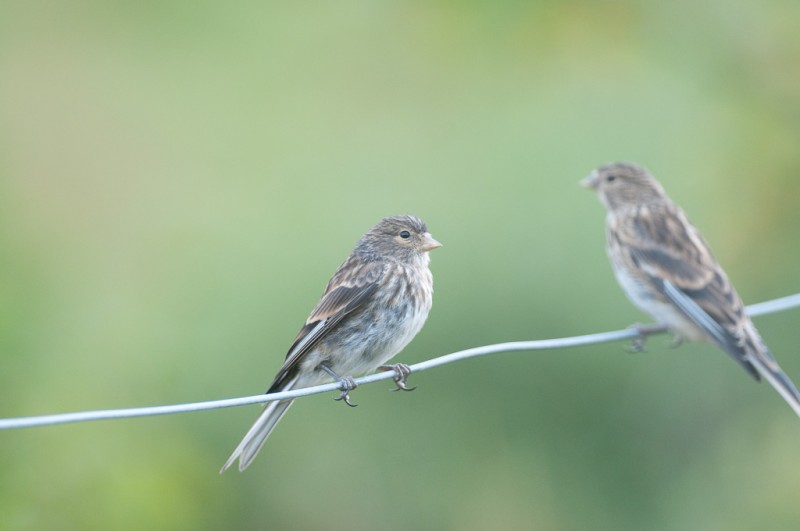Red Crossbill (Loxia curvirostra)
Twite (Linaria flavirostris)
Very similar to Parrot Crossbill, but has thinner neck, smaller head, steeper forehead and slender bill. Upper mandible is less curved towards the tip than in Parrot Crossbill, and the lower is straight, with no bulge. The tip of the lower mandible protrudes from behind the upper (tips of mandibles visibly crossing). The chest is less deep, and birds are not so front heavy. Large individuals may be difficult to identify because of overlapping characters with Parrot Crossbill. Plumage similar to Parrot, with dark wings and tail. Males with rufous red head and body, females green. Juveniles greyish green with streaking. Posture more erect than Parrot Crossbill, especially when foraging on ground.
Sound:Contact call similar to Parroy Crossbill's "tupp", but is on average higher and less powerful, with a "cut-off" ending. In sum: Parrot Crossbill; hard attack, soft ending, Crossbill: softer attack, cut-off ending. Beware regional variations and overlap in pitch of calls with Parrot. The song consist of improvised, resonant twittering, and series of contact calls with no apparent phrases. It is generally faster, with less marked pauses than in Parrot Crossbill, and the phrasing seems more random.
Contact call and song:
Distribution:
Xeno-canto: map
Ecology:Birdlife ecology
Links:
Observation.org Latest observations
Image search Flickr NB! May give other species
CCRelatively characterless plumage. Differs from Linnet in warmer, yellowish base colour, yellow bill (grey in breeding plumage), bolder wing-bars and coarsely streaked back. Male with pinkish rump. Told from Redpoll by white base of primaries (like Linnet), and missing red and black head markings. Slightly longer tail and shorter bill than Linnet.
Sound:Contact call a short "chep" given in series, similar to Brambling, Redpoll and Linnet. Easiest identified by other distinct call given both in flight and on ground; a peculiar, nasal and twangy "twite", from which the species name originates. Each "twite" gives the impression of the pitch being "out of control", like cartoon-like sound-effects. Song a rapid alternation of trills and nasal "twites", given in an even tempo with phrases of variable length. Lacks Linnet's frequent inclusion of "gig-gig" sounds.
Song:
Distribution:
Wikipedia: map (se also Xeno-canto below)
Ecology:Birdlife ecology
Links:
Observation.org Latest observations
Image search Flickr NB! May give other species
CC
 English
English Albanian
Albanian
 Armenian
Armenian
 Bulgarian
Bulgarian
 Catalan
Catalan
 Croatian
Croatian
 Czech
Czech
 Danish
Danish
 Dutch
Dutch
 Finnish
Finnish
 French
French
 Georgian
Georgian
 German
German
 Greek
Greek
 Hungarian
Hungarian
 Italian
Italian
 Latvian
Latvian
 Lithuanian
Lithuanian
 Macedonian
Macedonian
 Norwegian
Norwegian
 Polish
Polish
 Portuguese
Portuguese
 Romanian
Romanian
 Russian
Russian
 Sami : Lule sami
Sami : Lule sami
 Sami : North sami
Sami : North sami
 Sami : South sami
Sami : South sami
 Scientific names
Scientific names
 Serbian
Serbian
 Spanish
Spanish
 Swedish
Swedish
 Ukrainian
Ukrainian

